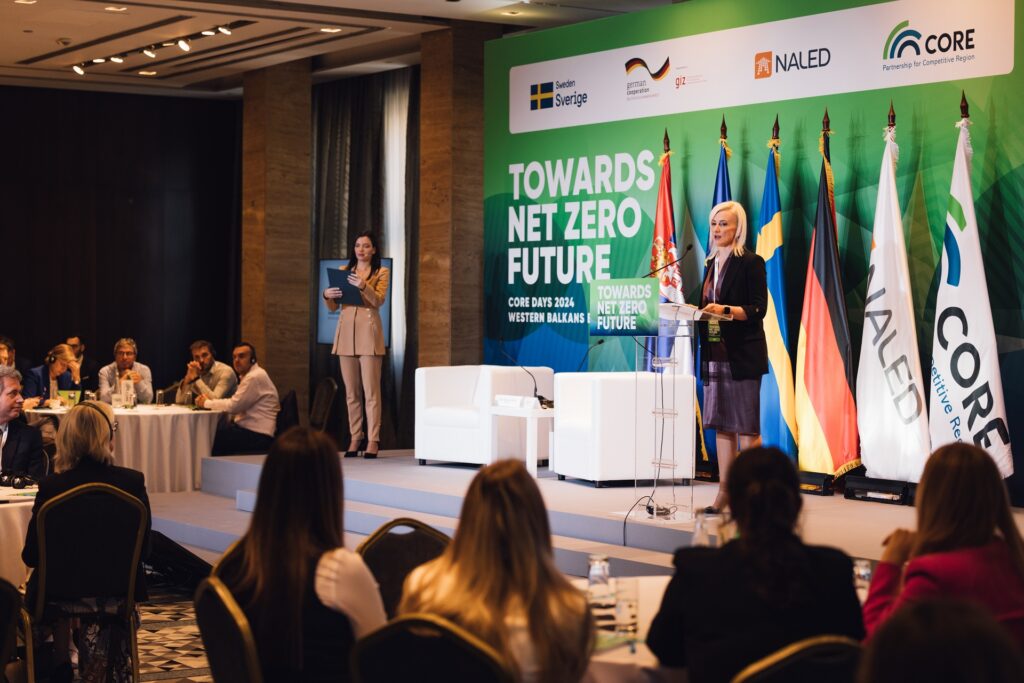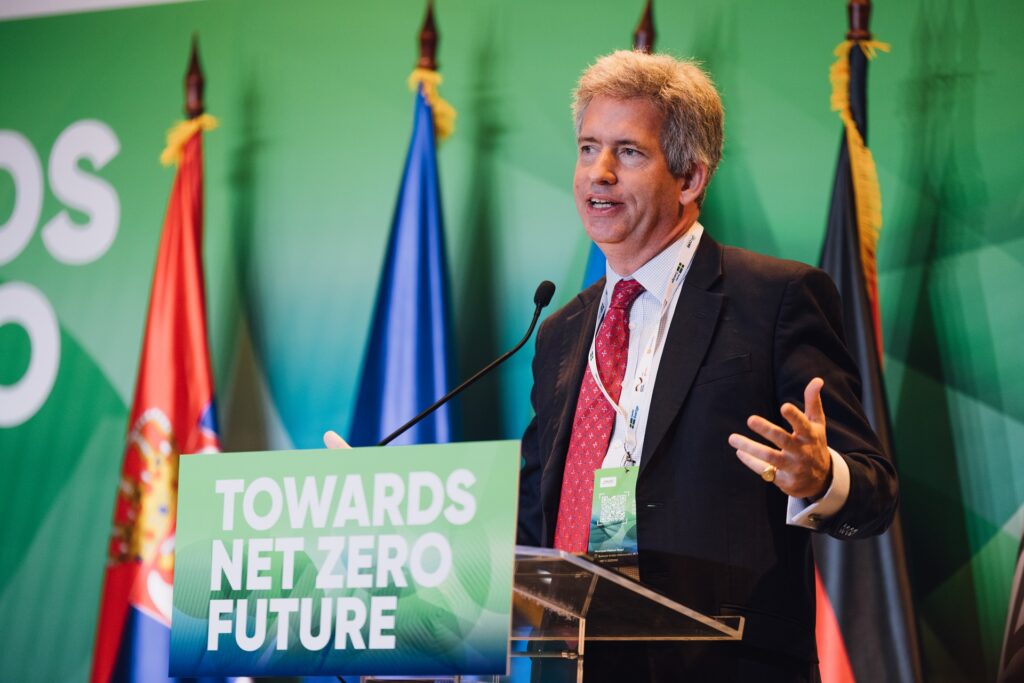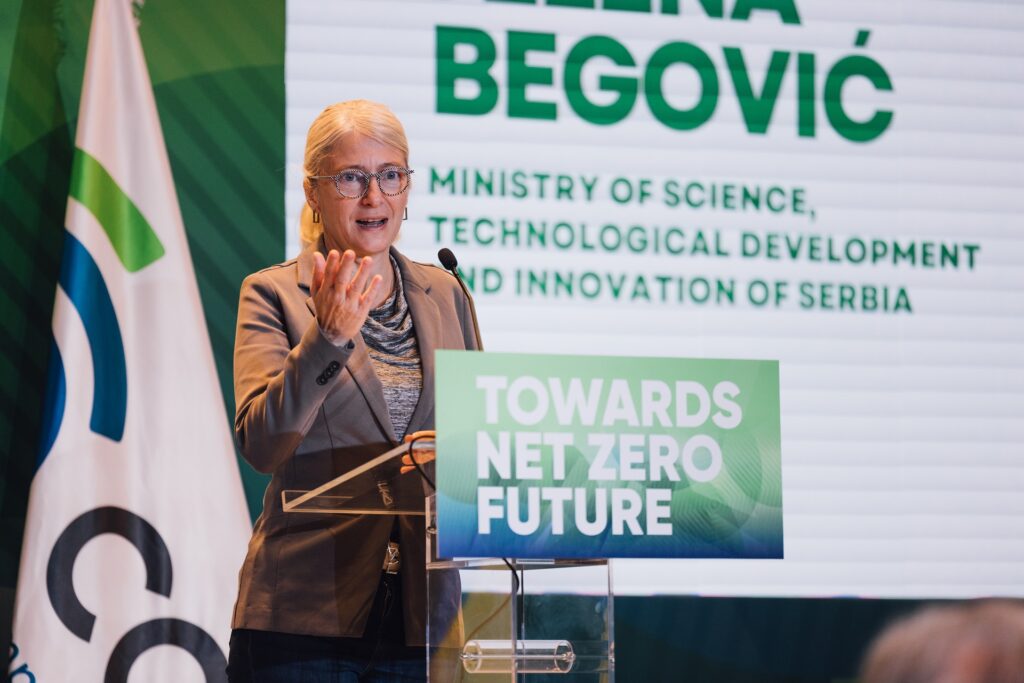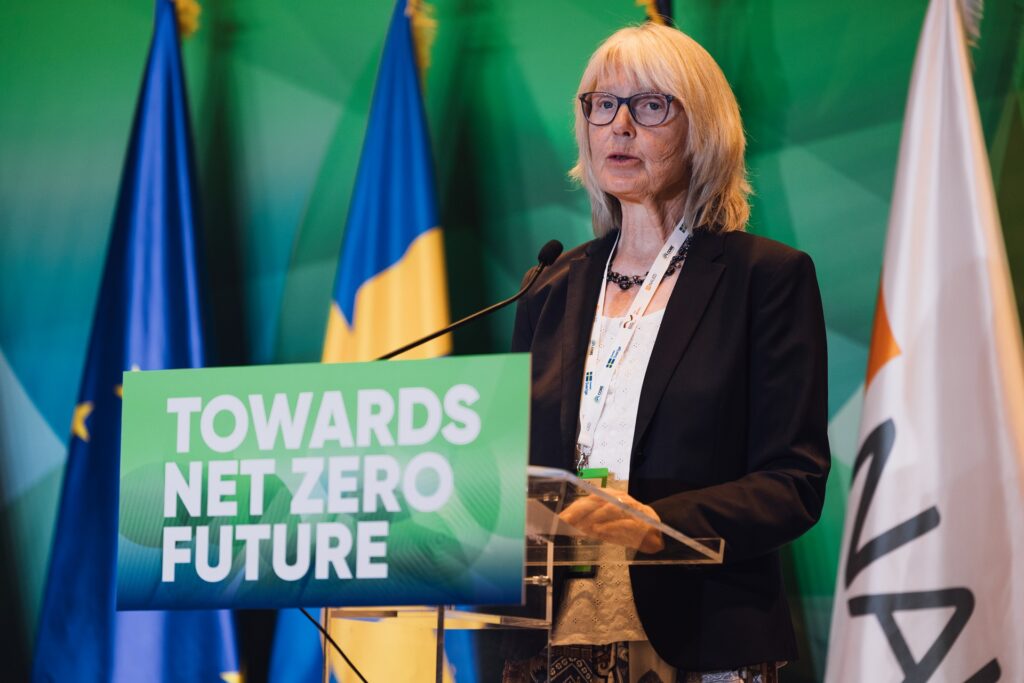Serbia committed to green transition: 45% of energy from renewable sources by 2030
 Energy transition, use of renewable energy sources and encouragement of innovation and investment in sustainable technologies are key initiatives for achieving environmental goals and competitiveness of our region, is the conclusion of the third regional CORE Days conference – Response to ESG challenges, which was organised by NALED, with the support of the Swedish and German Governments in cooperation with the Partnership for a more competitive region.
Energy transition, use of renewable energy sources and encouragement of innovation and investment in sustainable technologies are key initiatives for achieving environmental goals and competitiveness of our region, is the conclusion of the third regional CORE Days conference – Response to ESG challenges, which was organised by NALED, with the support of the Swedish and German Governments in cooperation with the Partnership for a more competitive region.

In Serbia, we are not only aware of the importance of ESG principles but also committed to their integration into our policies and practices. Serbia submitted an initiative to the United Nations for the adoption of the Resolution on the International Decade of Science for Sustainable Development to solve global challenges, such as climate change, energy transition and the preservation of resources for future generations – said the Minister of Science, Technological Development and Innovation Jelena Begović at the opening of the conference.
 To help this process, the Embassy of Sweden in Belgrade, in cooperation with NALED, will work over the next three years to encourage the sustainability of supply chains and their compliance with EU environmental, social, and management standards so that domestic companies are more competitive on the market.
To help this process, the Embassy of Sweden in Belgrade, in cooperation with NALED, will work over the next three years to encourage the sustainability of supply chains and their compliance with EU environmental, social, and management standards so that domestic companies are more competitive on the market.
Energy transition is key to environmental goals and competitiveness
– The inclusion of the private sector is therefore very important. Namely, supply chains often rely on practices that can harm human rights and the environment. Implementing the new EU regulation is an opportunity to respond to existing challenges and promote sustainable policies. Companies should conduct a “deep analysis” and map the risks related to applying ESG standards to improve their operations in terms of sustainability – said the head of the Department for Development Cooperation at the Embassy of the Kingdom of Sweden, Ann-Charlotte Malm.
 Great Britain’s Ambassador to Serbia, H.E. Edward Ferguson, welcomed the development of the debate on climate change and highlighted as a particularly important initiative the Government of Serbia’s decision to adopt the Integrated Plan for Energy and Climate, which foresees that by 2030, 45% of electricity will be obtained from renewable sources. He added that Great Britain will support the Western Balkans with 15 billion pounds to finance exports.
Great Britain’s Ambassador to Serbia, H.E. Edward Ferguson, welcomed the development of the debate on climate change and highlighted as a particularly important initiative the Government of Serbia’s decision to adopt the Integrated Plan for Energy and Climate, which foresees that by 2030, 45% of electricity will be obtained from renewable sources. He added that Great Britain will support the Western Balkans with 15 billion pounds to finance exports.
In accordance with the goals of sustainable development, the fourth edition of the Certification of Municipalities with a Favorable Business Environment in Southeast Europe (BFC SEE) program is also in place. Thus, the focus is now on digitisation, environmental protection, innovation, and EU integration at the local level.
– As many as 53 local governments from the entire region joined the process, and the BFC program became a tool for identifying best practices in implementing reforms. Thus, Serbia and Albania introduced electronic building permits following the example of North Macedonia, and now the economies of the region are taking over from Serbia the solution for online registration of seasonal workers – announced the executive director of NALED, Violeta Jovanović.
In 2022, with the support of the German Development Cooperation and more than 20 institutional partners from seven economies, NALED established the Partnership for a Competitive Region (CORE Partnership) to improve and harmonise business conditions in the Western Balkans. As a platform for dialogue and exchange of the best reform solutions, the Partnership implements the BFC SEE certification program and organises the CORE Days conference, where topics of importance for the future of the region are raised every year.